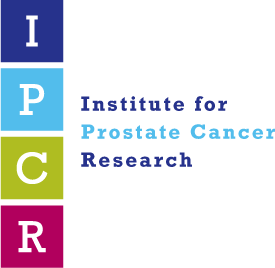- Goal:
- $300,000.00
- Achieved:
- $113,050.00
Uncovering information about rare gene mutations (e.g. in BRCA2, BRCA1), learning more about families who have been impacted by cancer but for whom no obvious mutation is identified, and offering early-detection and screening trials for people who are at increased genetic risk for prostate cancer are three ways that Dr. Heather Cheng, MD, PhD, and her fellow scientists are advancing the UW and Fred Hutch role as a leading prostate cancer research center in the Pacific Northwest and around the world.

The GENTleMEN study
Launched in 2017, the GENTleMEN study, or GENetic Testing for Men with Metastatic Prostate Cancer, led by Dr. Cheng, offers free, innovative and web-based genetic testing to men with advanced prostate cancer to see if they have inherited cancer risk gene variants (often called mutations) linked to the disease. What began as a statewide effort was expanded coast-to-coast.
As of June 2021, more than 600 men participated in the GENTleMEN study. One in 10 found they had an inherited cancer-risk gene — critical information that may cause them to rethink and expand their treatment strategy. The results also provide important information to biological family members who may carry the same inherited cancer-risk genes.
By removing the cost and logistical barriers to genetic testing, Dr. Cheng and her team hope to reach a more diverse, underserved, underrepresented and rural group of men. Black/African American men are a particular risk group—more than twice as likely to die from prostate cancer than White men—so improving access is critical.

Genetics Specialty Clinic
Men with metastatic prostate cancer are more likely to have an inherited genetic component, and may have more aggressive forms of prostate cancer. The Prostate Cancer Genetics Clinic, which opened in 2016 under the leadership of Dr. Cheng, serves men with advanced prostate cancer and have an inherited cancer risk gene (e.g. BRCA2, BRCA1, PALB2, CHEK2, MLH1, MSH2, MSH6, PMS2, HOXB13, TP53) and/or those who have a strong family history of prostate, breast, ovarian, pancreatic or other cancers.
At the clinic, patients receive genetic counseling and can get genetic testing, or they may review prior testing results to see if updated tested could be helpful and review opportunities for tailored treatment. In addition, Dr. Cheng can review research opportunities that may include learning more about inherited genetic and genomic testing options, as well as potential treatment options. Knowing whether a patient has a genetic mutation that is inherited or in the cancer helps doctors choose the best treatment plan. It can also open doors for to the patient to enter targeted clinical trials.
These online and telehealth genetic services were instituted well before the pandemic, created as a way to improve outreach and service delivery. During the pandemic, they have provided a critical lifeline for patients living in rural areas or unable to meet in person.
Genetic Insights
Some men who inherited BRCA2 mutations but do not have cancer are taking the initiative to schedule consultations about their risk, seek screening strategies and get involved in clinical trials. Others have enrolled in PATROL, a study funded by the National Institutes of Health. PATROL is a tailored prostate cancer early-detection and screening clinical trial for men with inherited prostate cancer risk mutations, e.g. in genes involved in DNA repair, and who are at higher risk of prostate cancer. The study not only helps men with cancer and a genetic risk factor but seeks to assist their male and female relatives who also may be at risk for cancer.







